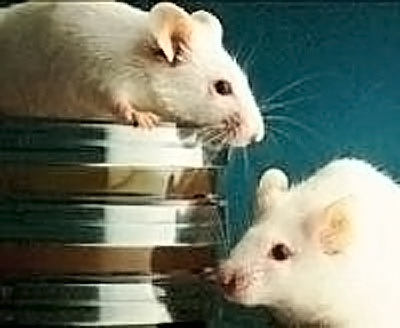
Research conducted by Professor Chankyu Park and his team at the Korea Advanced Institute of Science and Technology in Daejon, South Korea, seems to once again shore up the argument that sexual orientation is genetic in nature, and not a matter of choice.
According to a story in the San Diego Gay and Lesbian News, after Professor Park and his team disabled a specific gene is certain female mice, those mice then refused to mate with male mice and instead insisted on trying to mate with other females. The gene in question was the “fucose mutarotase” gene — abbreviated as FucM. Considering the results, perhaps they should call it the Won’t FucM Gene.
Pardon me. I turned into a 12-year-old there for a second. Anyway. Back to science.
Park explained that the FucM gene influences the levels of hormones that the brain is exposed to, and that disabling this gene simply caused the altered female mice to behave as if they were male and develop a sexual attraction to other females. He and his team also noted that hormones don’t affect humans the same way they do mice, so they aren’t sure whether the study has any relevance when it comes to human sexuality.
Park did say he would like to study whether an enzyme produced by the FucM gene influences sexuality. But he acknowledged it may not be that easy to find human volunteers. (I guess the mice don’t really get to refuse to participate.)
Park’s study was published in BMC Genetics journal.















